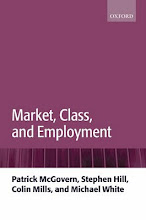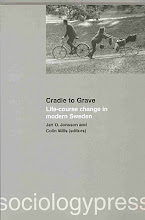My non professional reading is, I guess, pretty random. I have far more unread books on my shelves than I will ever have time to get through but I like the idea of availability - I can pick up something that I've noted as interesting and squirreled away, just as the spirit moves me. Whatever the process is that then guides my selection I have no real idea.
It just so happens that the last two books I read for pleasure had more in common than that they were written by Germans and dealt with painful aspects of German history. Ernst Jünger's Storm of Steel (In Stahlgewittern) is an account of his life in the front line during World War I. It is extraordinary for several reasons. Firstly it was written very soon (published in 1920) after the end of the war while the experience was still fresh. By contrast most of the classic British accounts (Goodbye to All That, 1929; Memoirs of an Infantry Officer, 1930; Undertones of War, 1928; The Middle Parts of Fortune, 1929) date from at least a decade later and are in a sense refined by the simple passage of time. Secondly Jünger most definitely does not belong to the "war and the pity of war" school. He was and remained throughout his life an ardent German nationalist (though not a Nazi - he was peripherally involved in the Stauffenberg bomb plot) and one gets the sense that his war-time service was the most exilerating thing that ever happened to him. What is truly remarkable though is the quite matter of fact nature of his account. Comrades fall around him or are horribly maimed on practically every page. The shells fall within feet and he expects to die at any moment but carries on doing his duty for what else can he do? He rarely sees the enemy and spends most of his time sheltering from artillery fire in dugouts, cellars and shell holes. There is no reflection on right or wrong or the justice or injustice of the cause - the book begins after the war has started and ends before the armistice - and no poetry. In the end he survives, though wounded more than twenty times and is decorated by the Kaiser. Though the attitude that underlies his account is alien (I would imagine) to most people now, there is an honesty about the writing that made me feel, yes, that is what it was really like for an adventurous young man of his social background, temperament and time and that to still convey this long after the events have faded from living memory is an achievement of considerable merit. You don't have to like the man or what he stood for to admire his art.
Honesty is what I also admire about Peter Gay's story of the six years of his life that he spent as a boy in Nazi Germany - My German Question: Growing Up in Nazi Berlin. In fact it is about much more than this. What it is really about is his attempt to understand the impact on his subsequent life. He is at pains to make clear that as "assimilated" jews who could pass as gentiles he and his family were able to live comparatively normal lives until just months before they were able to emigrate in 1939. Many suffered much more than they did and most (though not all) of his family survived the Holocaust. To be sure life could be difficult but what were the alternatives? Gay describes his frustration (and anger) at the lack of comprehension shown by people who ask him: why did it take so long to see what was coming? Why did so many stay when their country rejected them? The answer is simple: you stay, endure the indignities and bottle up your anger because this is your home, your life is here, you don't speak a foreign language and you have no skills that have any value in a foreign country. You probably know intellectually that one day you will have to leave, but while you can still go home from work, draw the curtains and enjoy some semblance of family life you try to carry on as normal. After all, notwithstanding the gangsters that are in power, Germany is probably the least anti-semitic country in Central Europe...
Gay's honesty extends to the confession that his Berlin boyhood poisoned Gay the man. It left him with many unresolved tensions in his feelings about Germany and the Germans. He is honest in admitting that many of these feelings are irrational - the account of his projection of anti-semitism onto the wholly innocent demeanour of a woman working in a currency exchange bureau during his first post-war visit to Germany is told with complete candour. He feels only pleasure at the news of the horrific firestorms that swept through German cities after allied bombing raids killing countless innocent women and children. You are given the impression that he doubts whether they were in fact wholly innocent. Just as with Jünger you may not like what you read, you may feel repelled by some of it, but you were not there. He was and if you are prepared to listen you can learn a little of what it was actually like.
It just so happens that the last two books I read for pleasure had more in common than that they were written by Germans and dealt with painful aspects of German history. Ernst Jünger's Storm of Steel (In Stahlgewittern) is an account of his life in the front line during World War I. It is extraordinary for several reasons. Firstly it was written very soon (published in 1920) after the end of the war while the experience was still fresh. By contrast most of the classic British accounts (Goodbye to All That, 1929; Memoirs of an Infantry Officer, 1930; Undertones of War, 1928; The Middle Parts of Fortune, 1929) date from at least a decade later and are in a sense refined by the simple passage of time. Secondly Jünger most definitely does not belong to the "war and the pity of war" school. He was and remained throughout his life an ardent German nationalist (though not a Nazi - he was peripherally involved in the Stauffenberg bomb plot) and one gets the sense that his war-time service was the most exilerating thing that ever happened to him. What is truly remarkable though is the quite matter of fact nature of his account. Comrades fall around him or are horribly maimed on practically every page. The shells fall within feet and he expects to die at any moment but carries on doing his duty for what else can he do? He rarely sees the enemy and spends most of his time sheltering from artillery fire in dugouts, cellars and shell holes. There is no reflection on right or wrong or the justice or injustice of the cause - the book begins after the war has started and ends before the armistice - and no poetry. In the end he survives, though wounded more than twenty times and is decorated by the Kaiser. Though the attitude that underlies his account is alien (I would imagine) to most people now, there is an honesty about the writing that made me feel, yes, that is what it was really like for an adventurous young man of his social background, temperament and time and that to still convey this long after the events have faded from living memory is an achievement of considerable merit. You don't have to like the man or what he stood for to admire his art.
Honesty is what I also admire about Peter Gay's story of the six years of his life that he spent as a boy in Nazi Germany - My German Question: Growing Up in Nazi Berlin. In fact it is about much more than this. What it is really about is his attempt to understand the impact on his subsequent life. He is at pains to make clear that as "assimilated" jews who could pass as gentiles he and his family were able to live comparatively normal lives until just months before they were able to emigrate in 1939. Many suffered much more than they did and most (though not all) of his family survived the Holocaust. To be sure life could be difficult but what were the alternatives? Gay describes his frustration (and anger) at the lack of comprehension shown by people who ask him: why did it take so long to see what was coming? Why did so many stay when their country rejected them? The answer is simple: you stay, endure the indignities and bottle up your anger because this is your home, your life is here, you don't speak a foreign language and you have no skills that have any value in a foreign country. You probably know intellectually that one day you will have to leave, but while you can still go home from work, draw the curtains and enjoy some semblance of family life you try to carry on as normal. After all, notwithstanding the gangsters that are in power, Germany is probably the least anti-semitic country in Central Europe...
Gay's honesty extends to the confession that his Berlin boyhood poisoned Gay the man. It left him with many unresolved tensions in his feelings about Germany and the Germans. He is honest in admitting that many of these feelings are irrational - the account of his projection of anti-semitism onto the wholly innocent demeanour of a woman working in a currency exchange bureau during his first post-war visit to Germany is told with complete candour. He feels only pleasure at the news of the horrific firestorms that swept through German cities after allied bombing raids killing countless innocent women and children. You are given the impression that he doubts whether they were in fact wholly innocent. Just as with Jünger you may not like what you read, you may feel repelled by some of it, but you were not there. He was and if you are prepared to listen you can learn a little of what it was actually like.








